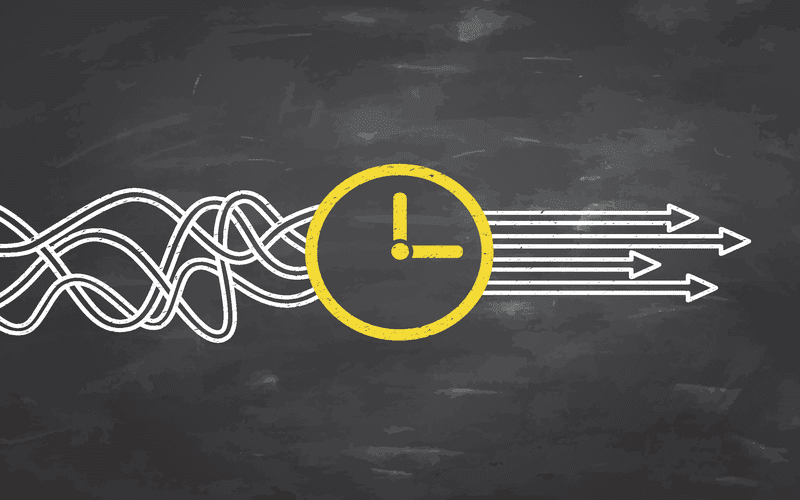Time Tested Ideas You Can Use To Make The Clock Your Friend

There is much to learn about time management, especially if it is something you’ve never practiced before. Thankfully for you, this article has some advice on the matter so you can get started in using your time better. Use these tips each day in your life to reduce stress.
Get a timer. If focusing for a set amount of time is difficult, setting a timer can help. As an example, if you know you have an hour to devote to a task, do so by setting your timer in 20 minute increments, and take a little break in between each one.
When you begin each day, review your schedule and fill in the gaps with other tasks. This will help you to see the big picture. Just make sure your list isn’t too long.
To make a priority list schedule that will work, it’s important to plan for things that may interrupt any time needed for tasks. If you don’t allow for unexpected things, you could mess up your day. You’ll be able to keep yourself on track if these interruptions are planned for.
Put more emphasis on the individual tasks that you have. Accept that you can’t always get everything done with no problems. You may become overwhelmed if you are attempting to get more done than you can handle. Take a minute to relax and breathe as you work on a single project through to its completion.
If you find time management to be a challenge, take a moment and thoroughly review what you are currently able to achieve. Are you focusing on one task at a time until it is done? If not, why? To be successful with time management, you must figure out what the problem is so that you can instead succeed.
Prioritize the tasks you do each day. You might quickly discover how much of your day is filled with that which is not truly urgent or even important. Sorting your tasks will improve your level of organization. Make a detailed priority list that will show you exactly what needs to be completed by order of priority.
Just say no. People often get stressed because they don’t know when to say no. When you have too many things to do on your to-do list, take a careful look at what it contains. Can you get someone else to do this task? If so, never be afraid to speak up and tell others that you need a little help.
If you need to work at maximum efficiency, make sure to close the door to your office. An open door leads to many distractions. Closing the door offers immediate privacy. They will see you as being focused on your job, and this allows you to get things done in a timely fashion.
View your schedule each day. Are there activities you can delete from your schedule? Are there things you can have others do? Learning how to delegate your tasks is important. After you give a task to someone else to handle, you must let go and allow them to take control of it.
Stay focused on what you are doing until it’s done. Don’t become distracted when things happen while you are working on a task. Don’t let other people influence the importance of your tasks. This should be stopped, unless it’s an emergency. Instead, concentrate on the task at hand before beginning another one.
No one can get everything done. You’ll never meet this goal. Odds are that about 20% of your activities, thoughts, and conversations actually produce around 80% of your results. Try all you can to complete what is possible, but stay realistic.
When setting up your daily schedule, list your tasks in order of their importance. This will keep you focused each day. Evaluate what is most important to get accomplished during the day. List those things on first on your schedule. Then you’ll be able to work on down to the things that aren’t as important.
Proper mental preparation is vital when you’re getting ready to tackle your to-do list. It can be difficult, but after practicing you’ll be able to get yourself in the correct mindset. Just let yourself know that you only have to focus for a little time and then allow yourself to do so.
Consider taking your task list with you wherever you go. Having this paper is a great way to remind you of what needs to be done. Certain tasks can be stressful or evoke emotions. This can put a strain on you, making you panic over what to do next. Having a proper list compiled can help remind you of your tasks throughout the day.
Learn how to correctly prioritize what needs to be finished. Complete important projects first. When you are doing too much at one time, each task will be done less than perfectly. In the end, you do not accomplish anything. In contrast, if you work on one thing before moving onto the next task, it will be more manageable.
Take the list of things you need to do and turn it into four sections. Mark your vertical columns as not important and important. Next, draw a horizontal row and label using urgent and non urgent. Limit the time you spend on the not urgent and not important lists to no more than five or ten percent of the day. The important/urgent section will be the most prominent part of your day. Just be sure that you allocate enough time for the non-urgent but important quadrant so that those task will not end up turning into emergencies.
You can probably see that some people use effective time management plans. Relax, take your time and get it done. Implement the tips you’ve read here and everything will work out for you!
Comments are closed.